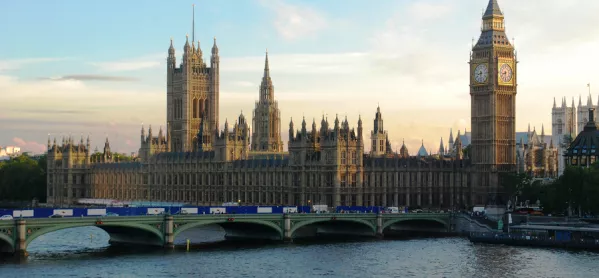
- Home
- ‘Debate will be FE’s chance to push for real change’
‘Debate will be FE’s chance to push for real change’

MPs are to debate a petition calling for better funding for further education, which, as I write, is approaching an astonishing 70,000 signatories. The fact that it was started by students is both exciting and inspiring for those of us who’ve spent our careers encouraging young people to become active citizens.
Every part of the public sector wants more money. Many have good cases to make. Ours is quite simply that if we as a nation are to fill the yawning and ever-widening skills gap, there’s only so much we can do with what little we currently receive. It’s worth remembering last year’s report from the Institute for Fiscal Studies (IFS), which proved that FE has been worse hit by austerity than any other part of the education sector. Spending on FE and adult education has fallen by almost £3.5 billion since 2010 and the sector has had to negotiate 10 consecutive years of cuts totalling 30 per cent of income.
FE is long used to being the “forgotten sector” or a place for “other people’s children”. Take a read through the questions, debates and ministerial responses to questions on education in any given week in Parliament and you will see plenty of discussion of schools and universities, but FE rarely figures; all the more reason to celebrate this forthcoming debate and to ensure MPs are properly informed about the dire crisis facing the sector.
Post-school requirements
The thinking behind the allocation of funds is strange and counterintuitive. There seems to be a perception in Whitehall that because of the sums spent on an individual over their school career, their requirements thereafter will be less; that is to say that having had 11 years of funding up until 16, the level from 16 to 18 does not have to be as high, and at 19 even less is required. This is often not the case.
In Milton Keynes, every school has its own sixth form. Young people who have become disillusioned with education in their first year of A levels often come to Milton Keynes College to be “rescued”. However, with the first year of cash already spent on a false start, this leaves only one year of full funding to help young people who are already proven to be in difficulty.
FE colleges have the skills and the staff to deliver individual progress on a large scale but this requires more funding and time and not less, as is currently the case. Evidence already shows that employers prefer college-trained entrants specifically because they are more work-ready, so it is important that we have the wherewithal to meet that demand.
Academic success
The connection between funding and success is clearly demonstrable. Milton Keynes College serves many chronically disadvantaged wards. The level of academic success already achieved by students when they arrive here is low in national terms, ranking 187th out of 245 colleges in English and 197th in maths. In terms of their progress - i.e., successful completion of GCSEs in each subject, we rank 60th and 103rd respectively - a clear demonstration of value added. However, this comes at a cost. As policy, the college pays a premium for high-quality staff in both departments of around £4,000 per teacher, inevitably reducing the money available for other subjects. Money doesn’t guarantee success, but a lack of finance inevitably makes things more difficult.
So what can we expect and hope for from our elected representatives on Monday? The first measure of their commitment will be how many turn up. College principals are busy writing to their local MPs, exhorting them to go to the debate. Funnily enough, there seems to be no easily accessible record kept of how many members go, although 10 or 15 appears to be the norm.
Turnout will tell a story
Westminster Hall debates are easily dismissed as they play no role in creating legislation. What they do is necessitate the response of a minister on the spot who will have to answer specifically the request put by the petition. On the basis that those MPs who have turned up have done so because they support the petition, it’s fair to assume the minister will face some informed and determined scrutiny, albeit in a less bear-pit-like atmosphere than the Commons Chamber.
And there is always that hope that somehow a debate will lead to real change. It can happen. Four years ago, a petition calling for a sugar tax achieved 155,000 signatories and the minister flatly insisted that no such levy was in the government’s plans. Four months later, George Osborne was announcing it in his Budget.
The cultural anthropologist Margaret Mead famously said: “Never doubt that a small group of thoughtful, committed citizens can change the world. Indeed, it is the only thing that ever has.” Fingers crossed that those students who launched the petition can make that dream a reality.
Julie Mills is principal and chief executive of Milton Keynes College
Register with Tes and you can read five free articles every month, plus you'll have access to our range of award-winning newsletters.
Keep reading for just £4.90 per month
You've reached your limit of free articles this month. Subscribe for £4.90 per month for three months and get:
- Unlimited access to all Tes magazine content
- Exclusive subscriber-only stories
- Award-winning email newsletters
You've reached your limit of free articles this month. Subscribe for £4.90 per month for three months and get:
- Unlimited access to all Tes magazine content
- Exclusive subscriber-only stories
- Award-winning email newsletters



